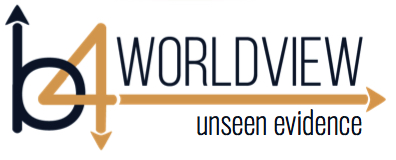
Key Thought for this session:
“I came into this world yearning for an abundant and virtuous life; what happened?”
Your personal identity also consists of your core beliefs. These are assumptions you make about what is true that tend to shape what you believe in actual situations. For instance, self-esteem is a belief about your self-worth. It answers questions like, ‘am I important, special, approved, and so forth?’ Studies show people form their belief of self-worth in different ways. Some believe esteem is based on performance, some believe it’s based on identity. Your self-esteem and beliefs about where it comes from causes you to deal with criticism and praise in certain ways.
For example, if you have a low self-esteem and oh, by the way, we haven’t determined that yet (smile and pause), but if you do, then it is likely you would not seek out feedback from others on how you are doing. You would not want to risk hearing anything unfavorable because you already feel negative about yourself. The reverse is true if you have a high self-esteem. In this case, negative feedback is not threatening to you but can be constructive to help you perform better. We will look at self-esteem more later.
Sometimes self-esteem is confused with self-efficacy, which is a belief you have that you can be successful at doing something. Efficacy is mainly about confidence and it must be related to some task or type of tasks. For instance, your self-efficacy may be high in changing oil in your car but low in teaching college physics. Your self-efficacy toward a task has a major influence on how much effort you give to accomplishing the task.
For many people, their belief about God is essential to many other of their worldviews. I once heard a young person say she first heard the word God in a Coca-Cola commercial. If you consider God at all, then your worldview of Religion answers many questions, like:
Is there a God?
Is God relevant?
What’s God like?
Does he judge us?
Where is He when we need Him?
Does God take sides in war?
If God is good and powerful, why does evil seem to win?
And many more.
If your core beliefs include God, we will have a chance look further at your religious worldviews later.
Another contributor to your personal identity is knowledge and experience. You gain knowledge and experience across your life. Your view of yourself influences the knowledge and experience you desire to seek. At the same time the knowledge and experience you obtain plays a role in how you understand yourself. We will have much more to say about these influences as we progress through the course because they do make up an important part of how you make sense of yourself and your world.
The third contributor to your worldview is human nature.
While human nature may influence your social and personal identity in unique ways, nature provides us all with a natural identity. Our human nature has an influence that is common to all people because all people are human. Your understanding of your nature as human is important. It may surprise you that what you think about people in general may or may not be true. Culture and personal beliefs create different ideas about our nature so people do not agree on what is true about the nature of humans. Some believe human nature is good and can become perfected. Others believe that human nature has been spoiled and seeks to only serve itself.
While you may not think about your worldview of human nature often in this way, who among us have never said, “Well, I am only human”?
Maybe you felt the need to say this to justify why you treated someone unkindly or made a foolish mistake? This means you have an assumption that you have flaws and you are not perfect. Yet, at the same time you may feel that people are basically good and deserve to be treated fairly and have good things happen to them. This raises an interesting question that is part of everyone’s worldview. Is it possible to be both innately good and flawed at the same time?